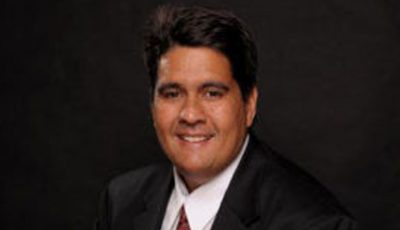Debate and dialogue
Readers of this paper seemed to have experienced Gary DuBrall as incessantly railing against the darker side of things “native and local” (e.g., Micronesians do not plan) that I thought (many did, too) contained many truths. His stance, not surprisingly, roughed up a few feathers.
I read him more as that of a debater, a denizen much encouraged on island where we train our young in the art of debating, if not the instinct to attack the jugular in order to win up on stage against less confrontational “contestants.” In fact, debates are often described as gladiatorial contests rather than a discourse to enlighten an audience over an issue. The West considers debate as meaningful exchange to define ideas to a point where a divide is clearly delineated and one chooses either to be “pro” or “con.”
Some of us who grew up in the Protestant tradition of Christianity were particularly spoonfed with the feistiness of the Luther-Calvin-Zwingli-Knox-Asbury traditions where the ability to engage the magisterium of the holy Roman Church into heavy contentious debate was the norm rather than the exception. We were trained to go after the jugular against the Papists even after the Vatican II opened up the fresh world of oikumene. Some of my warm-hearted brethren will break bread with the Episcopalians but will enter the shades of the CK cathedral only at a friend’s funeral.
The debate practice was carried into the niceties of English parliament where one was allowed to be sarcastic to another as long as one was funny in the doing or was indirect in the process, be gentlemanly, as it were. Pinoys are Asian masters of indirection (mag-padaplis), with an oft-quoted local saying, Bato-bato sa langit, ang tamaan, huwag magagalit, (“If the shoe fits, wear it,” though the saying is less blunt and literally means, “Stones in the sky, whoever is hit would please not be angry”).
Gary decided to retire to the calmer waves of Waikiki in spite of having relations on island; at 75 years old, I can understand the impatience with impertinence and spineless sloppy thoughts. It is in the nature of debates that conflicts ensue. My take for the moment is on the form of discourse. Given what we now know about knowledge, airing out thoughts does not constitute disagreements; only differences of opinions, ideas and perspectives. It is in “doing” that a “resolve” is debatable, and even then, decisions need not be combative.
CCTV’s Dialogue in China is a program that airs twice daily where the anchor hosts a guest or two to discuss a relevant subject. The program promotes that “ideas matter.” Fair enough. Cognitive knowledge is after all the cornerstone of European meta-think and Western education. There are not many English shows in China, and save for CCTV sponsored by the government, there are not many choices unless one has cable, which may carry programs from Singapore, Hong Kong, and other countries.
It is possible that the producers of the CCTV Dialogue program have “debate” in mind because in most instances, they prod their guests to an “either/or” position, culturally foreign to the Chinese setting that is clearly “and/both” in its yin-yang characteristic that avoids conflict to keep “face.” Confrontational as befitting its Western role models, the program in English looks like it decided on the “compare and contrast” method that leads to unavoidable polarized positions.
Debate on Eton’s fields was cricket where conflict is decided by the bat, the thrown ball, and the skill of the batter, with all the language of combat involved on the reality of play and game. “De-ba-te” in Philippine politics when I was growing up was a matter of honor, often resulting in life-and-death situation when grudge turns into violent vengeance. The question of honor, Sicilian in origin through Italy and Spain, resulted in many tears, like what the young Ferdinand Marcos was accused of causing when the elected Nalundasan ridiculed Marcos’ father after bettering him in the polls.
We see this debate spirit at work in the EU’s strident application of sanctions on Russia where EU’s new security officer justified it as simply applying pressure. “Sanctions is strategy,” she said, to gain negotiating advantage. Whoa! Does the lady ever read history? I mean, groups of people with armed forces do not play cricket on the fields of Eton for strategic advantage? They drive their tanks to the border!
EU measures everyone by the value of the euro, supported by a worldwide Wall Street, managed by global corporate powers, but not all economies operate out of market values. In some quarters, “honor and integrity” and the promotion of indirection through “fashionable façades» are virtues of power that move human souls. These are priceless, though not always sane and reasonable, and unmeasurable by the euro and U.S. dollar value scales!
Debate hones wit and glibness; dialogue talks the language of the heart. We reserve an extra seat for anyone inclined to dialogue. Got time?



























